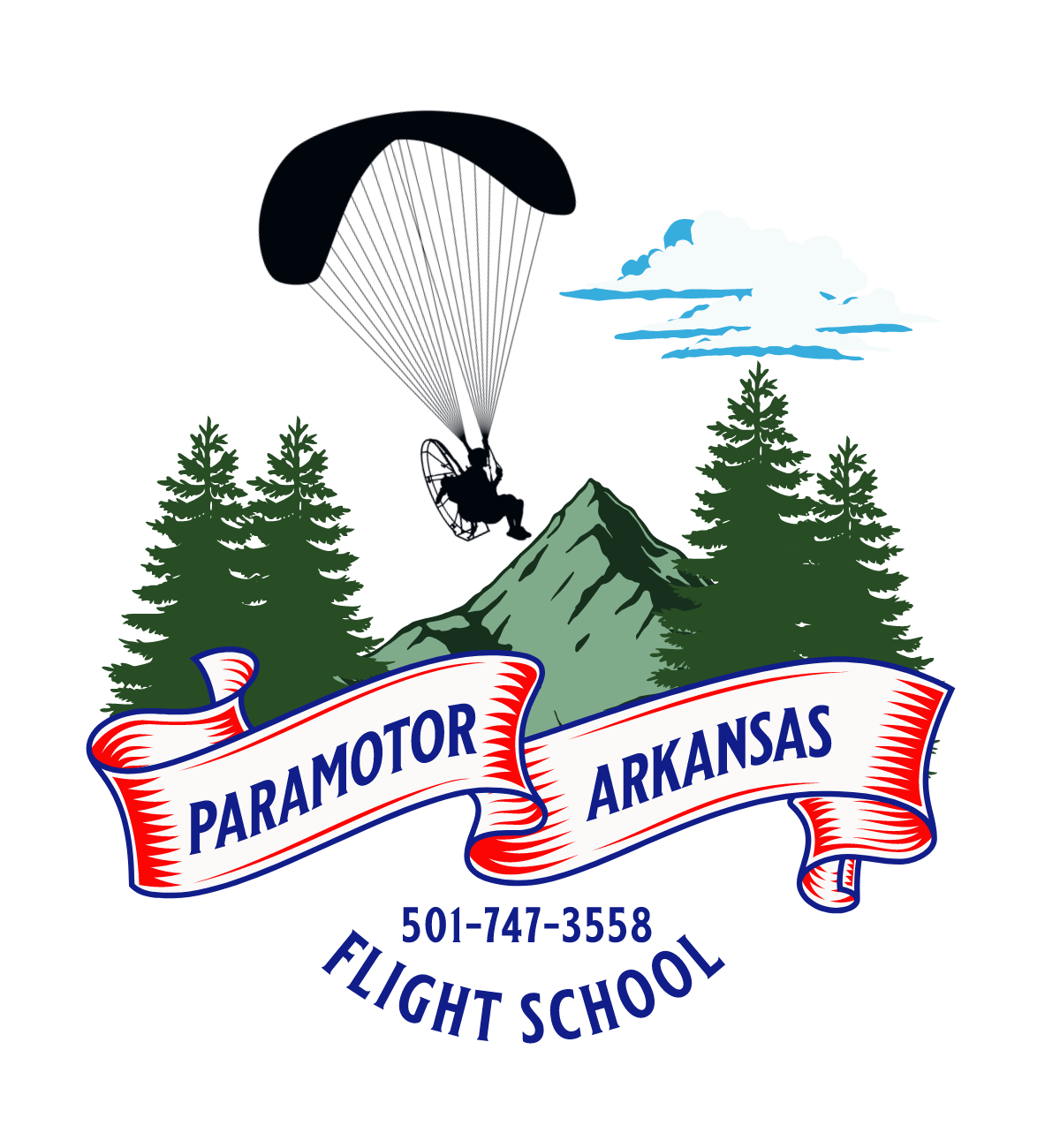Weekend Only Paramotor Arkansas Curriculum 1 Month
A one-month Weekend-Only Paramotor Arkansas Curriculum is designed for participants seeking an accelerated yet comprehensive introduction to paramotoring. Each weekend is strategically packed with engaging sessions, covering essential ground school topics, pre-flight preparations, flight theory, and hands-on simulator training. The condensed schedule ensures a focus on critical aspects such as safety protocols, emergency procedures, and practical towing exercises. Participants will engage in supervised solo flight preparations and culminate their training with actual solo flights. This condensed timeline offers a dynamic and immersive experience, allowing individuals to swiftly acquire the necessary skills and knowledge for safe and confident paramotor flying, all within the constraints of a one-month timeframe.
Week 1: Ground School and Introduction
-
Day 1:
- Welcome and Orientation
- Introduction to Paramotoring
- Safety Briefing
-
Day 2:
- Paramotor Components and Equipment
- Ground Handling Techniques
Week 2: Pre-Flight Preparation and Simulator Training
-
Day 1:
- Pre-flight Inspection
- Motor Starting Procedures
-
Day 2:
- Kiting Practice
- Introduction to Simulator Training
Week 3: Flight Theory and Towing Practice
-
Day 1:
- Aerodynamics and Flight Theory
- Simulator Practice: Launch and Landing Drills
-
Day 2:
- Introduction to Towing
- Risks and Safety Measures
Week 4: Solo Flight Preparations and Graduation
-
Day 1:
- Solo Flight Briefing
- Pattern and Landing Practice
-
Day 2:
- Supervised Solo Flights
- Graduation Ceremony
A one-month weekend-only paramotor training program is indeed a condensed and intensive format, providing participants with a swift but comprehensive introduction to the world of paramotoring. The pace of this curriculum is considered very fast due to the concentrated nature of weekend sessions, where participants cover a wide range of topics and engage in hands-on activities.
However, the success of such a program is heavily weather-dependent. Weather conditions significantly impact the feasibility of conducting safe and effective training sessions. Wind, precipitation, and other meteorological factors can influence the ability to practice crucial paramotoring skills, especially during flight sessions. Instructors may need to be flexible with scheduling and adapt to changing weather patterns.
Despite the rapid pace, the emphasis on safety and the need for participants to master critical skills before progressing to solo flights may necessitate additional time. If weather conditions are adverse or if participants require more practice to achieve proficiency, it may be advisable to extend the training period or provide supplementary sessions.
Ultimately, while a one-month weekend-only paramotor curriculum offers an accelerated learning experience, the dynamic nature of weather conditions underscores the importance of flexibility and adaptability in ensuring a safe and effective training environment.
